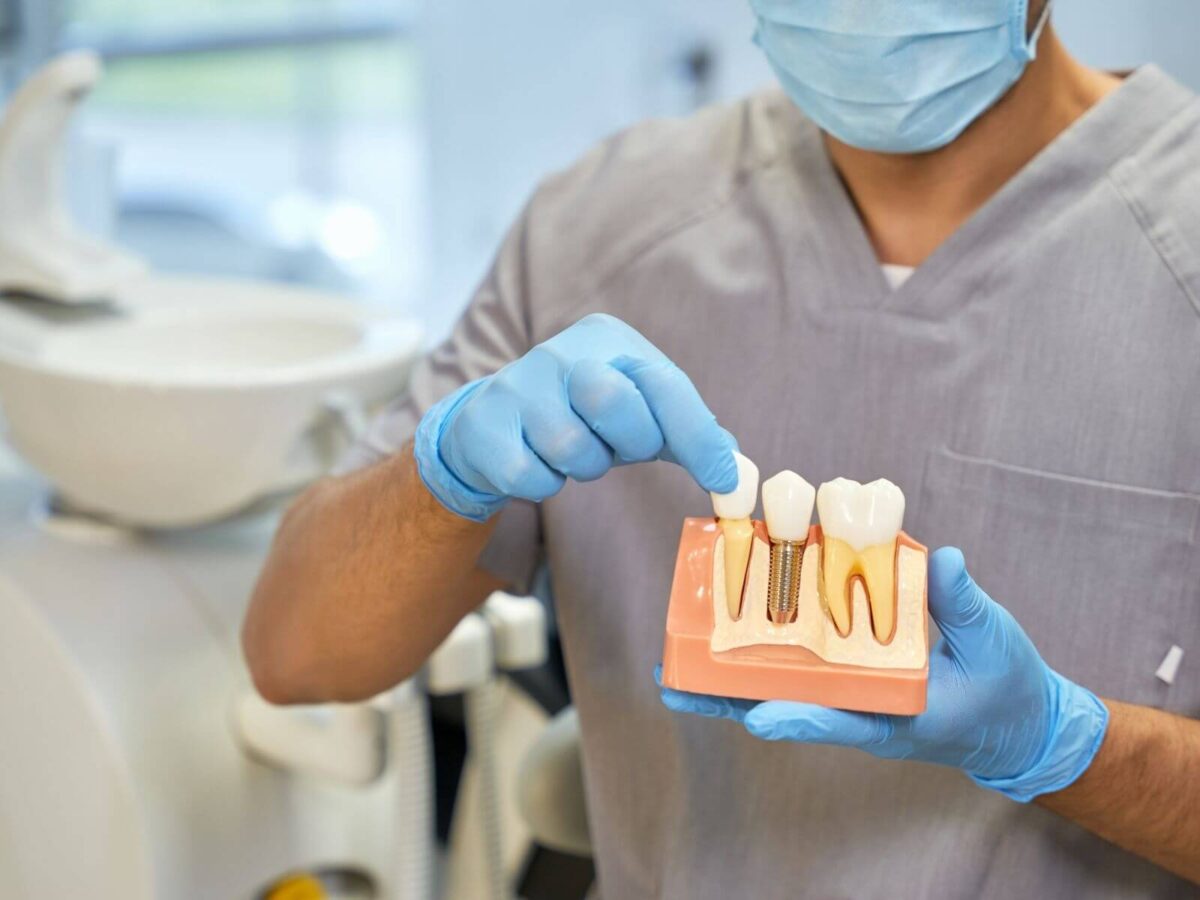Blog
Dental hygiene tips for healthy teeth & gums

How To Make Your Dental Implants Last Longer
Dental implants are artificial teeth that can replace a missing tooth effectively. This structure can help you align your teeth and support your jaw while you eat or smile. Dental implants are designed to fix permanently to your mouth using screws and can stay as it is for over a decade. Most studies prove dental implants are a reliable alternative for missing teeth with a maximum success rate.
This article will teach us more about dental implants and how to protect them from early damage. The preventive measures can help you use dental implants for longer and contribute to their success.
Are Dental Implants Helpful?
Dental implants are artificial teeth fixed to the jaw using titanium screws to provide alternative teeth for your jaw. Missing teeth can affect your bite, jaw alignment, and appearance. Dental implants can boost confidence, give symmetry to your face, and help you restore oral function.
Missing teeth can be present due to a variety of reasons. These implants act as a tooth but are much more secure than natural teeth. They can sustain a lifetime if used correctly and maintained properly. These implants can last longer if certain tips are followed. With an effective oral hygiene routine and proper implant care, you can extend the life of your implant.
Tips To Follow
A long-lasting, successful implant requires much care and attention. While oral hygiene is essential, many other factors can affect the life of your implant. Here are some of the factors that affect dental implant longevity:
Select The Right Implant
Many types of implants are available in the market. It depends on the dentist’s recommendation, your allergies, and their diagnosis to find the right fit for you. Your implant might fail if your dentist does not fit your missing tooth correctly. You must visit an implant specialist to determine and fix the implant perfectly.
Oral Hygiene
Oral hygiene is essential for oral health, especially regarding artificial teeth. Artificial teeth might get infected without effective cleaning methods such as brushing or flossing. The plaque buildup increases and affects the neighboring teeth and tissue. This can result in gingivitis, inflammation, and infection in the gums.
Professional Cleanings Session Every Six Months
You can also get professional cleaning to clear hard-to-reach surfaces and ensure your oral hygiene is well-maintained. Dentist visits can also help you understand oral issues quickly so that you can start treatment and protect your implant from failure.
Quit Tobacco And Smoking
People who smoke, eat tobacco, or have similar habits might have a lower success rate than the ones who do not. The implant failure percentage for smokers is 11%, while the for non-smokers is less than 5%.
Smoking can cause implant failure and slow down the healing process. This also accelerates gum diseases and might interfere with blood flow around the infected area. Dentists might suggest quitting smoking and tobacco to boost the success rate of your implant till it heals properly.
Use Nightguard
Grinding your teeth can also result in implant failure. You might need implant restoration, which will affect the cost of treatment. You can use a dental crown to protect your implant, but it will also wear down with time. You can get a customized nightguard to protect your teeth from further damage.
The nightguard covers all your teeth and protects them from injury caused by grinding. You can also protect your natural teeth along with your artificial teeth using this nightguard.
Diet Habits
Most dental implants can be affected by the food you consume. Caffeine content such as tea or coffee must be limited. You must also avoid eating too hard or sugary food options such as candies or raw vegetables. Avoiding alcohol, chewing ice, or crunchy foods to protect the implant from fracture. With effective adjustments to your lifestyle and diet, you can extend the life of your implant.
How To Make Dental Implants Last Longer?
Dental implants are considered a permanent alternative for missing teeth. If used with care, they can last over 30 years. They bond with the neighboring tissue and connect with the jaw over time. This process is called osseointegration. Once this process is completed, the surrounding tissues, bone, and implant are infused. Like natural teeth, it can also serve as an artificial root with a proper foundation.
Dental implants can also last longer with proper oral hygiene, dental crowns, and night guards at night to protect implants from normal tears. Most successful implants last over 10-15 years with dental crowns.
Conclusion
Dental implants are artificial teeth, but with time, they fuse with the surroundings and act as natural teeth. Finding the right type of implant for your missing tooth is essential, or it might result in implant failure. You can maintain your implant for decades with the right diet, proper hygiene, and some practical tips.
You can contact Cypress Dentist TX to get diagnosed by an implant specialist. They can help you identify and treat the gum condition properly. Dental implant care requires efforts and adjustment in lifestyle. You can use longevity tips to maintain your oral health with a dental implant for a longer time.


